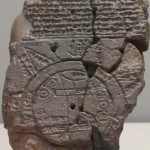We come to the 11th and final chapter of John Goldingay’s Old Testament theology — OT Theology: Israel’s Gospel. Goldingay takes cuts through the First Testament rather than building a synthetic theology; his books provide an excellent example of narrative or Story-shaped theology. The questions are different; the approach is different; and the result is different. And this chp is about Jesus as “God Sent” explores how Jesus fits into that Story. We will begin the 2d volume next month and I hope you can purchase this book and follow along with us (OT Theology: Israel’s Faith
). His books are long so one chp per month is do-able. What do you think?
As is the case with Goldingay, since the chps are long and the path winding, summaries would get too long … so we’ll just dip into points here and there.
On Jesus as herald of God’s reign; he doesn’t like the term “kingdom.” Too much history behind it so he uses “reign” and “sovereignty.” Oddly enough, he then speaks of the message of Jesus being good news socially and bad news for those in rule. The kingdom is “proleptically present” in Jesus. And, in dealing with the difficult imminent passages of Jesus, he says it can refer to an immediate thing (like the disciples’ seeing Jesus in glorified form), to the ongoing significance of Jesus, and that the reign of God turns out unlike what was expected. The next event turns out to be an interim. [This is a big point; he doesn’t make much of it, but it helps us to read prophetic literature.]
The “reign called off” section teases. Things don’t turn out as expected; “God’s plan has to be reworked” (798). A new plan arises. The execution of Jesus changes how everything is perceived. “All the options are open again” (799).
Later he has more thoughts on kingdom and how it is used today: Jesus “does not suggest that acts such as those of Zacchaeus bring about God’s reign … they offer pictures of how things will look when God implements that reign… But the NT does not talk of John or Jesus or their disciples bringing in God’s reign or establishing it or furthering it or working for it. It is their task to do outrageous things, to go in for crazy gestures, to make wild statements, to tell outlandish stories” (805-6). How outrageous is that?
Good thoughts on Jesus as king, the Word embodied and especially on divine surrender, where he appeals to the really fine small book by Richard Bauckham, God Crucified. Here he shows that Jesus’ crucifixion is the sort of thing Yhwh has been doing, in some ways, in the First Testament.
The Postscript is about narrative and history, history and criticism (critical theories), creation and history — where he calls Genesis 1-2 “imaginative parables” of what is true and what happened.















